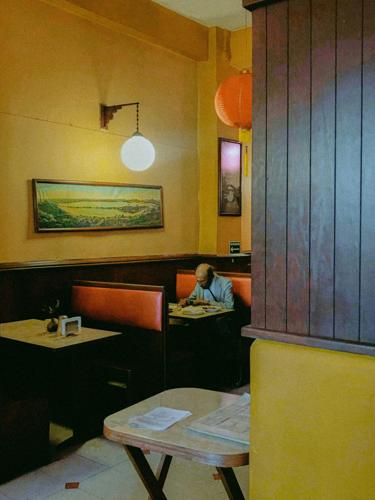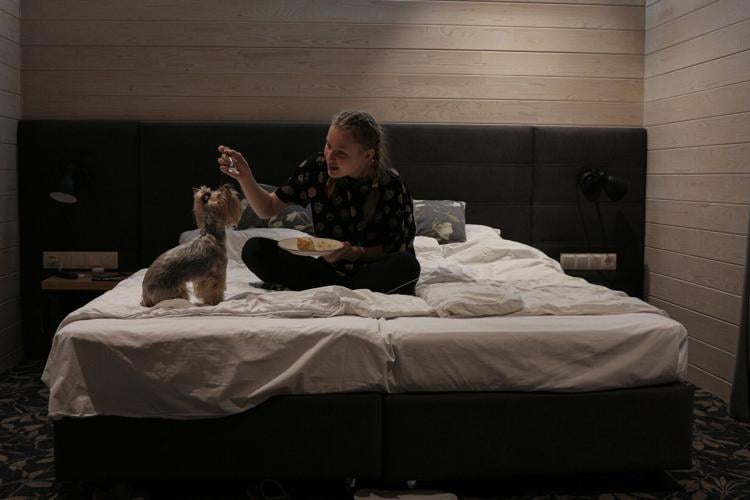Sometimes when she’s sitting on the couch in the evenings, Danielle Yoon gets called out by her partner for staring at the kitchen.
“He tells me to stop and jokes that he knows I’m taking mental inventory of what’s in there,” said Yoon, a Toronto resident who works in marketing. “I don’t even know I’m doing it.”
Yoon loves to drink good black coffee all day long and often eats even when she’s not hungry. Why? She says it’s like sometimes her mouth is missing something.
Fortunately, she recently learned from a meme that’s been making the rounds on social media that there’s a word for that: kuchisabishii. The literal translation of this Japanese word is “lonely mouth” or, as it’s often explained, eating even when you’re full, because your mouth is, well, lonely.
“When I saw it, it was like, oh, my God, I know that exact feeling,” Yoon said.
Kuchisabishii may be in the same wheelhouse as mindless eating, bored eating, or emotional eating, but Julia Stanislavskaia, a lecturer at Toronto Metropolitan University’s school of nutrition, considers it a particularly useful term for both students and patients alike.
“Interestingly enough, clients often bring up the word ‘lonely,’" said Stanislavskaia, who is also a registered dietitian. "It's beautiful that the Japanese language actually has a term to describe this fairly complex concept. Best of all, the word normalizes the feeling, because it doesn’t have a negative connotation.”
It’s also an evocative concept for people who get a lot of joy from the physical sensation of eating, such as Yoon, who says her all-day black coffee habit is related to a love of complex flavours in her mouth. For others, it’s more about an obsession with texture.
You might be interested in
“Even if I just finished dinner and feel totally full, if there’s something else around with a really great crunch, I’m 100 per cent going for it,” said Gerry Jobe, co-owner of Simps Modern Beverage.
Jobe says he loves anything with high-acidity, a crispy texture or potent heat. It almost doesn’t really matter what it is, he said, so long as it scrapes the top of his mouth and leaves it feeling raw.
“I want my food to hurt me a little,” he added. “I don’t know if this sounds masochistic, but I want my nose to run and my eyes to water and for my mouth to feel on fire and for it to throb and ache after I eat.”
Jobe can relate his experience of eating gelato with crunchy rice noodles a few years ago in remarkable detail. He can also describe every element of a beloved chili crunch made by Kelowna chef Mike Wilkins. Jobe is clearly present and paying close attention to every single punchy bite he eats — a state of mind that, apparently, is key to making lonely-mouth eating work.
“If you enjoy (food) mindfully and actually process the flavour, it can be considered a positive emotional experience,” said Stanislavskaia. “If you sit and enjoy a piece of your favourite dessert and focus on what that tastes like, that will be an experience that’s unlikely to lead to any negative feelings.”
The first step, she says, is to be aware that you’re engaging in non-hunger eating. After that, you can focus on the joy of helping your mouth feel like it finally has company. When it happens on autopilot, though, we tend to eat a lot, fail to taste the flavour, and then feel badly after.
Although the first image that might come to mind is bingeing on popcorn while catching up on the entire new season of “Fargo,” Stanislaskaia says social situations also often lead to joyless eating. We’re so busy socializing, we often fail to notice what’s going in our mouths.
“Non-hunger eating is normal because food is so much more than just nourishment,” noted Stanislaskaia, “It’s culture, it’s a way to express our feelings and emotion, it’s tradition and it’s also socialization. There’s so much more about food that connects us, so you cannot just think of it as nutrients.”
My friend who had stomach surgery a few weeks ago and is on a liquid diet is keenly aware of this. She says she understands kuchisabishii in a totally different way now, even though she’s totally detached from the experience of food and has started to look at eating almost like an anthropologist might.
“I can’t really eat anything other than soup and these protein drinks that taste awful,” said Jean Forcier*, who noted that it’s the cultural and social part of food she misses most.
“I’m not at all hungry,” she added, “But my brain tells me I want the joy of food!”
*Name withheld at source’s request.

















Anyone can read Conversations, but to contribute, you should be a registered Torstar account holder. If you do not yet have a Torstar account, you can create one now (it is free).
To join the conversation set a first and last name in your user profile.
Sign in or register for free to join the Conversation